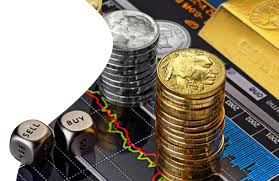 As the world economy recovers from the pandemic lockdown, the appetite of investors for commodities backed instruments has increased. Moreover, commodities do not have much correlation with other traditional asset classes, which is why they are often regarded as a Portfolio Enhancer by Goldman Sachs. Though the commodity trading market in Nigeria is informal, its potential is untapped. This article discusses some of the key aspects of the Nigerian commodity market.
As the world economy recovers from the pandemic lockdown, the appetite of investors for commodities backed instruments has increased. Moreover, commodities do not have much correlation with other traditional asset classes, which is why they are often regarded as a Portfolio Enhancer by Goldman Sachs. Though the commodity trading market in Nigeria is informal, its potential is untapped. This article discusses some of the key aspects of the Nigerian commodity market.
The Nigeria Commodity Exchange is the organized trading market for agricultural and solid minerals in Nigeria. It commenced commodity trading on July 25, 2006, and opened a Spot Market in Kano in 2008. In 2014, it also introduced electronic commodity receipts (ECRs).
Apart from crude oil, gold and coffee are other commodities in Nigeria that are traded worldwide. Apart from these, investors can invest in aluminum, zinc and copper, which are the most stable metals. While trading in these metals in Nigeria may seem risky, it can be rewarding if you can find a good company that can trade your metals. It may also be an excellent way to diversify your portfolio. But make sure you know about the risks involved.
You should consider investing in precious metals if you can afford the risks. As a matter of fact, it is one of the most profitable ways to invest in precious metals. The prices of sachet water have doubled to N20 per sachet, compared to N5 a few years ago. The price of precious metals is known to preserve wealth in times of high inflation. It is also a good idea to invest in these commodities if you have a large budget.
A true representation of market trading is what Argus Metals delivers to its customers. Its comprehensive analysis of current and anticipated market conditions helps you identify opportunities for regional arbitrage and allows you to detect competitive material advantages. A better price assessment is vital in the world of metals trading. The Argus Metals data platform is highly customizable to meet your specific business needs. With a solutions-oriented account management team, Argus is committed to providing accurate metal pricing.
The evolution of the Nigerian foreign exchange market has been influenced by the country’s political and economic structure. Prior to 1958, foreign exchange in Nigeria was earned by the private sector. Commercial banks held these funds on behalf of local exporters. Agricultural exports contributed the bulk of the country’s foreign exchange receipts. Due to the Nigerian pound’s close relation to the pound sterling, easy conversion delayed the development of an active foreign exchange market.